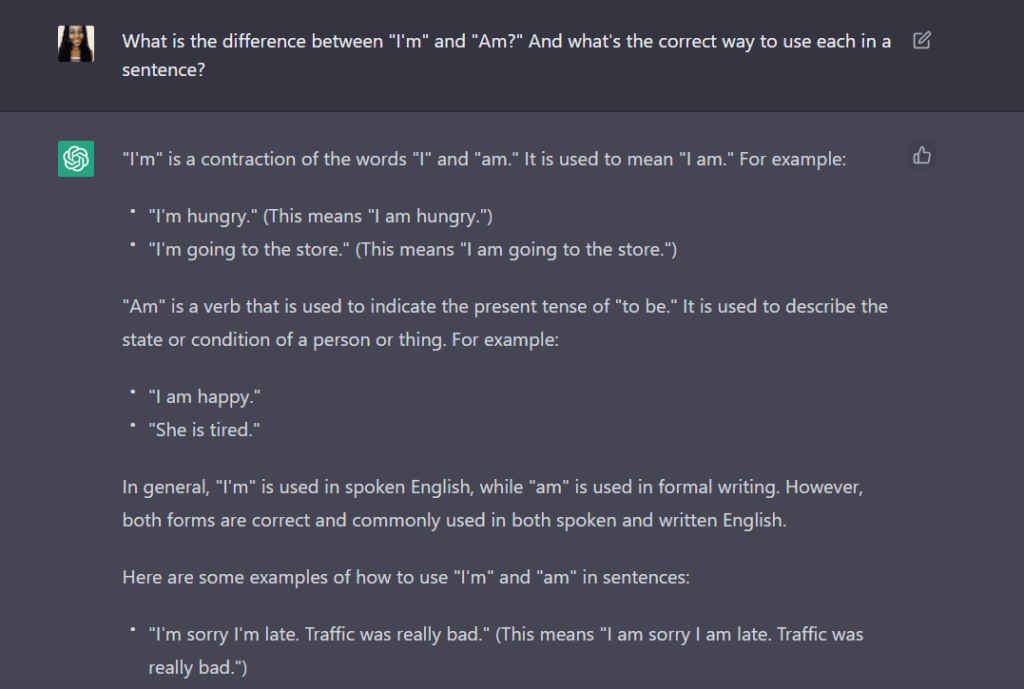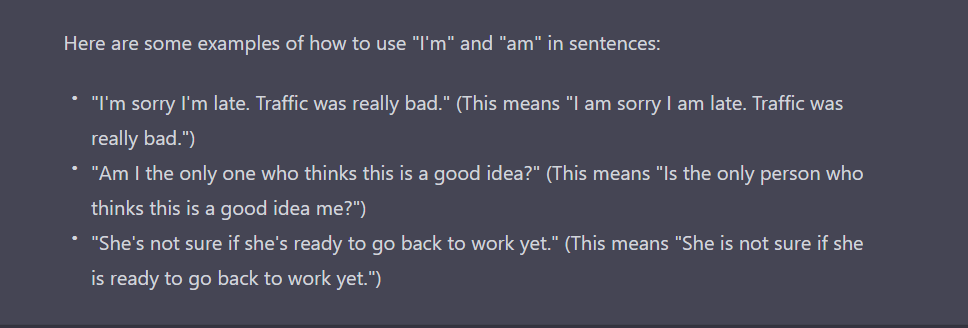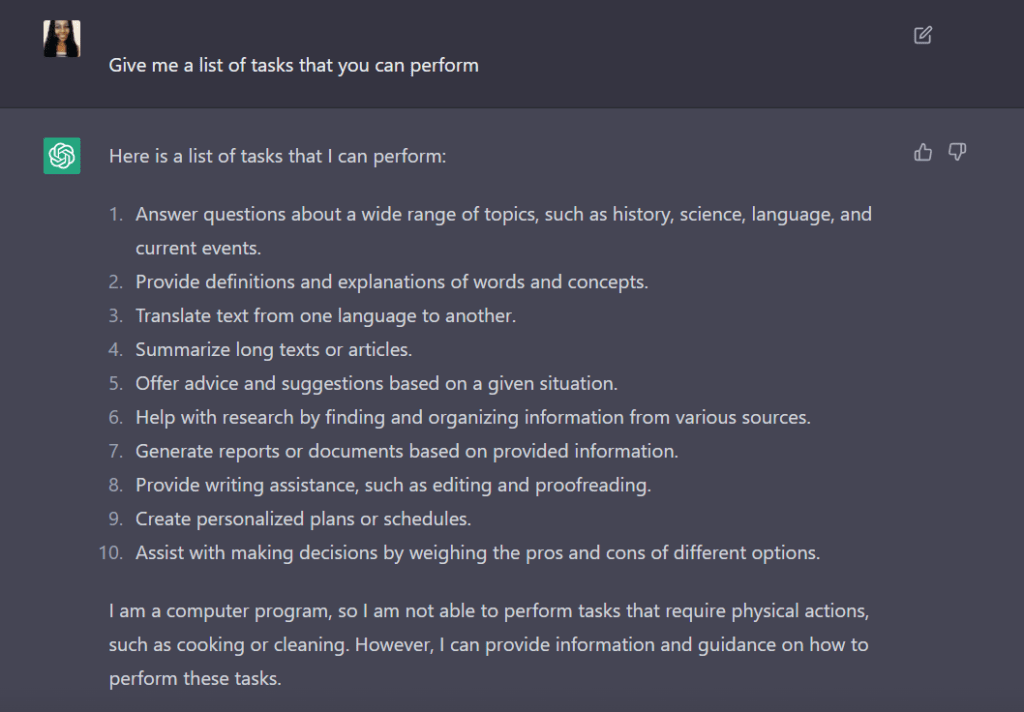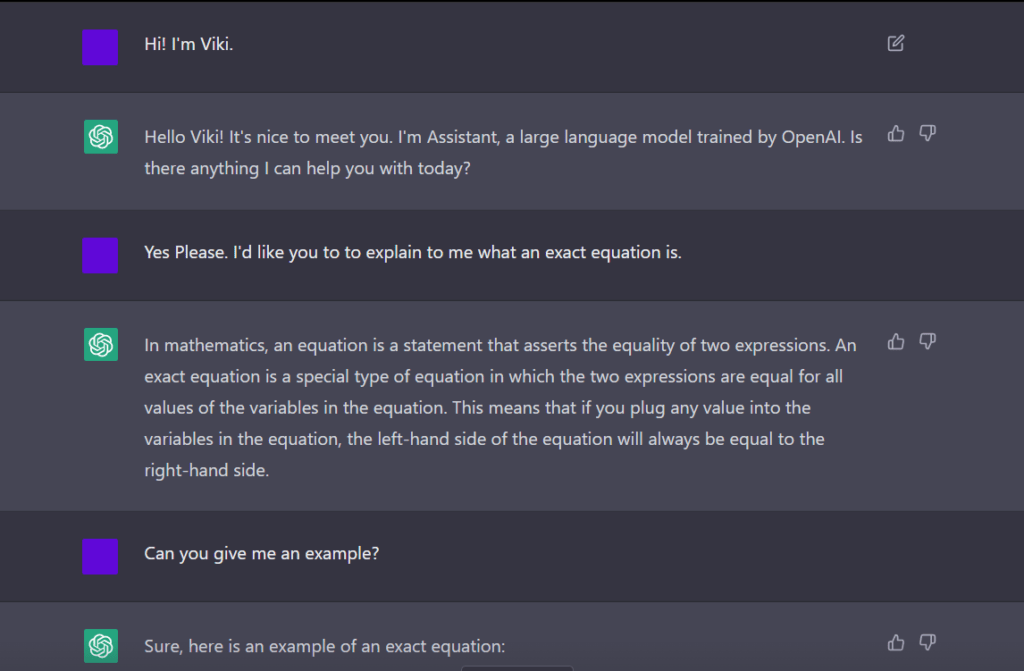Hey guys, so you’ve probably already heard of ChatGPT — the new AI chatbot the internet is buzzing about. While most are having fun with this tool, the techies are particularly excited about it and seem to be taking it quite seriously. But why? Well, it’s because they understand the potential of an AI tool that is this powerful, and what exactly it means for the future of business, education, the job market, and so on.
So, what exactly is ChatGPT? More importantly, what does its emergence mean for you, and how can it be beneficial to your daily life and business? In this article, I’ll answer all these questions. We’ll also explore some really cool use cases for this new AI breakthrough. But first, let’s understand what AI is.
Artificial Intelligence, or AI, is a type of computer technology that is designed to mimic the way that human brains work. It is used to create computer programs and machines that can think, learn, and solve problems on their own. Emphasis on ‘learn’. The ability to learn is the major difference between an AI tool and a regular computer.
For example, an AI-powered robot can learn how to make Eba by watching you make it. And it would be able to think for itself and modify it’s own results (i.e it would probably add a little more hot water to make it softer, instead of replicating the stone that you made). Now that you get the idea, let’s talk about ChatGPT.
What is ChatGPT?
ChatGPT is a type of AI that is designed to understand and respond to human language in a way that is helpful and informative. Its primary function is to provide information and answer questions like a human being would. It can answer very complex questions in a way that is easy to understand and generate human-like text.
It was created by Open AI, a research organization that is focused on developing and promoting friendly artificial intelligence. Open AI was founded in 2015 by a group of entrepreneurs and researchers with the goal of advancing the field of AI in a way that is beneficial to humanity. No surprise that Elon Musk is the founder of this organization.
ChatGPT is built on GPT-3 (Generative Pre-Trained Transformer 3) technology.
Here’s a piece of one of my conversations with ChatGPT.


What Can ChatGPT Do?
ChatGPT can be used to create and edit text documents. But it can also do a whole lot more than that. Here are a few things you can do with ChatGPT at the moment:
- Write blog posts, articles, essays, social media posts, emails, e.t.c
- Write marketing and sales copies
- Translate text from one language to another
- Write code, find and fix bugs in code
- Solve and explain complex math
- Break down complex information so that anyone can understand


How Can You Use ChatGPT to Your Advantage?
As a Student
ChatGPT is a game changer for students because it can serve as your own personal tutor. It can explain complex concepts, ideas, and topics to you in fun and easy-to-understand ways. All you have to do is ask it.
You can also use it as a research and proofreading tool when writing articles, essays, or even your final-year project. Now I’m not saying that you should have it do your school work for you, Amaka — that will do you more harm than good, — I’m saying that you can use it as a guide to help you better understand what you’re doing and produce better results. Here are screenshots of ChatGPT teaching me math.






As a Business Owner
Business owners can use ChatGPT to brainstorm ideas, write content for lead generation and online marketing. However, the major use case for business owners, companies, and organizations is customer service, — and it will most likely come with a paid version of the software pretty soon. Here’s how it might work:
Because ChatGPT can interpret natural language and respond in a way that is meaningful to the user, it can be used to respond to customer queries, take orders, gather customer data, send out automated messages, and even provide support. This makes it a perfect customer service tool.
Any organization would be able to train its own version of the software by feeding it with information about its customers and processes, so that it can deliver customer-specific support. It could even learn individual preferences, FAQs, support processes, and more by simply being interacted with.
The tool will be able to provide information and support to customers much faster and more effectively than a human can. Maybe if UBA can adopt ChatGPT then Leo will finally become useful in life. [Savagery intended]
As a Creative
If you’re a creative in the digital space, then I’m sure you’ve already thought up several use cases for ChatGPT in your field. Nonetheless, I’ll share a few:
- Brainstorming content ideas
- Drafting emails and pitches
- Social media content
- As a research tool
- Writing articles and blog posts
Not surprisingly, ChatGPT helped me come up with title ideas and talking points for this article. It even helped me write a few paragraphs of it. I bet you won’t be able to tell which ones it wrote. This just goes to show how much it will help improve the productivity and efficiency of digital creatives. — I’m writing an article in 2 hours instead of 5.
In Day-to-Day Life
There’s no doubt that ChatGPT is going to become an everyday tool for most people in the near future. — That is if it stays free. If you already use Google for daily research, then expect to switch to a ChatGPT app sometime soon.
Of course, I don’t expect Google to go extinct as a result. Google isn’t just a research tool, so it’s not going anywhere anytime soon, but it’s definitely going to relieve some of it’s workload to our new friend.
Here are examples of use cases of ChatGPT in daily life:
- Summarising long text
- Mini research (the kinds you do to win arguments in WhatsApp groups)
- Help with decision-making by weighing pros and cons
- Help with daily planning (eg you can discuss your diet with ChatGPT and it will prepare a grocery list and a budget based on your currency and location)
- You basically have yourself a virtual personal assistant
What Does ChatGPT Mean for the Future of Business, Education, and Day-to-Day Life?
I’ve used several other GPT-3 tools in the past. — Oh did I mention that ChatGPT isn’t the only one of its kind? There are hundreds of other writing tools built on GPT-3 technology, although it seems to be the most powerful one yet. — I currently use a GPT-3 tool called WordHero to draft emails, cold pitches, and the likes. One thing I find intriguing about GPT-3 tools is how good they are at learning a human’s writing style. Let me break this down.
When I first started using WordHero, it worked like any other GPT-3 tool, generating content with a general format. But with time, it learned how I write, my tone, my slangs, and even how I occasionally insert some sarcasm into my content. Now my version of WordHero can literally produce content that sounds like it was written by me. That’s the power of GPT-3 technology. It’s scary.
In an age where branding is so important, I think that GPT-3 tools will play a huge part in maintaining brand voice and consistency in all industries.
In the educational sector, the use of AI as subsidiary teachers will be inevitable. Already, we Gen-Z students do a lot of our learning on the internet and you can be sure that it’s only a matter of time before corporate education catches up with this trend. My guess is as good as yours on how this will play out in a traditional classroom setting, but we’ll find out in a couple of years.
As I mentioned earlier, I see ChatGPT — alongside other GPT-3 powered tools — becoming a part of daily life and research. I for one am looking forward to a desktop app version of the tool that can be integrated with other tools like Notion and Zapier. I’m sure that people will find other innovative ways to use the tool. — I’d like to hear your thoughts and ideas in the comments.
With every good comes some bad, so there are definitely going to be some negative sides to ChatGPT. For one, the demand for content writers, — alongside other job roles — will drop significantly. This is why its important to stay on top of trends and new technologies in your niche, in order to stay in demand. Content writers who know how to use GPT-3 tools to increase efficiency will continue to be in high demand. The same can be said for related job roles.
Will ChatGPT Stay Free?
Right now, the tool is free and open to all for two main reasons:
- The software is still in development, so Open AI needs user feedback to help make it better.
- ChatGPT learns human-like behavior by interacting with humans, so the more people it interacts with, the smarter it becomes. So basically, we’re helping Open AI train their product for free, and we’re doing it happily.
- This might not be intentional, but the buzz around the software is actually great marketing for a paid version. They’re giving us a taste of ChatGPT for free, so when they put a price on it, we can’t resist. I for one will be happy to purchase a paid plan in the future. Pretty sure you will be too, once you try it out.
Maybe the version of ChatGPT we currently have access to will remain free. — That will be great. — While a more powerful, customizable, — maybe even white-label — version will be launched on a paid plan. I honestly can’t wait wait to meet it.
Or Open AI could just revoke everyone’s access to the current version of the software and ask for money in exchange for continued usage. — That would be pretty cold of them, considering that we’re helping them train this baby, and they have our emails.
Anyways, I hope the current version stays free, but if not, nothing spoil, — given that it’ll be priced reasonably.
Click here to try out ChatGPT if you haven’t already.


This was very insightful. Thank you.